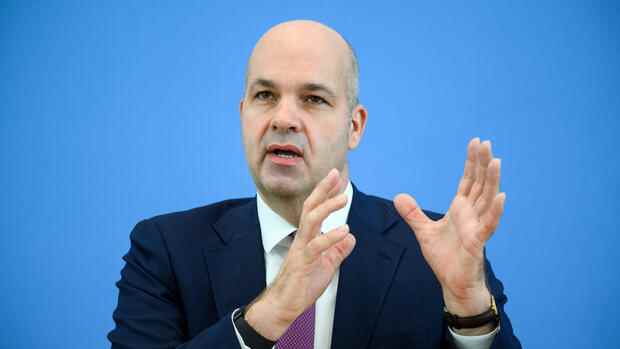“Not only is there a wave of corporate insolvencies, but also personal insolvencies.”
(Photo: dpa)
Berlin The President of the German Institute for Economic Research (DIW), Marcel Fratzscher, does not consider the relief that has been granted to be sufficient. “We are not only in an economic, but also in a social emergency,” Fratzscher told the Handelsblatt. “The federal government urgently needs to follow up with a fourth relief package.”
From Fratzscher’s point of view, the further aid measures should include both an electricity and gas price brake as well as significantly higher direct transfer payments to people with middle and low incomes. “Politicians must act now, before the damage becomes permanently irreversible,” warned the DIW boss.
In view of the sharp rise in energy prices, the federal government has put together a third relief package of at least 65 billion euros to support the population and companies. The volume is more than twice as large as that of the first two relief packages with a total of 30 billion euros.
The federal states should also participate in the third package of measures. A dispute has broken out between the federal and state governments over funding, and individual states are threatening blockades in the Bundesrat.
Top jobs of the day
Find the best jobs now and
be notified by email.
A point of contention is whether the debt brake should be suspended again because of the increasing burdens on public budgets caused by the state crisis measures. Lower Saxony’s Prime Minister Stephan Weil (SPD) is already expecting an agreement at the upcoming Prime Ministers’ Conference next Wednesday that one is in an emergency and that the restrictions set by the debt brake must be suspended in this situation.
Lindner insists on compliance with the debt brake
“I can’t see us getting through this situation without borrowing at least some of it,” Weil said. “Now is the time when we can still set the course. And we should definitely do that.”
>> Read also: “Now I’m making a loss with every roll”: Journey through an entrepreneurial country at the limit
The debt brake anchored in the Basic Law stipulates that the budgets of the federal and state governments are to be balanced without income from loans. There is, however, a leeway that for the federal government amounts to a maximum of 0.35 percent of gross domestic product. In the event of natural disasters or other emergency situations, the debt brake can be suspended, which happened in 2020 and 2021 because of the corona pandemic.
Federal Finance Minister Christian Lindner (FDP) sees no reason to do this again. However, he reserves the right to take such a step as a last resort. The economist Fratzscher warned that sticking to the debt brake would be a “fatal mistake that will cost millions of people in Germany dearly”.
With a view to the current situation, Fratzscher spoke of a social imbalance that harbored “enormous risks”. Food banks and debt counseling services were becoming increasingly popular. “Not only is there a wave of corporate insolvencies, but also personal insolvencies,” said the economist.
Solo self-employed and small companies are threatened with over-indebtedness
He pointed out that 40 percent of Germans had no savings, i.e. no reserves, to be able to cope with the higher costs for energy and food. The previous three relief packages are “still completely inadequate”, especially for people with medium and low incomes. In many cases, the measures compensated for just under 20 percent or less of the additional costs.
Many families could “simply not cope” with additional costs of 400 or 500 euros per month. In many cases, over-indebtedness is unavoidable. “This also affects many self-employed people and entrepreneurs from small businesses, such as in retail.”
The measures of the third relief package decided at the beginning of September to compensate for the rapidly rising prices include, for example, one-off payments for pensioners and students and a price cap for a basic energy requirement. The coalition is also aiming for a successor to the nationwide 9-euro ticket at a price of 49 to 69 euros a month – if the federal states help finance it.
More: Germany’s economy is facing a recession: which measures will help now
